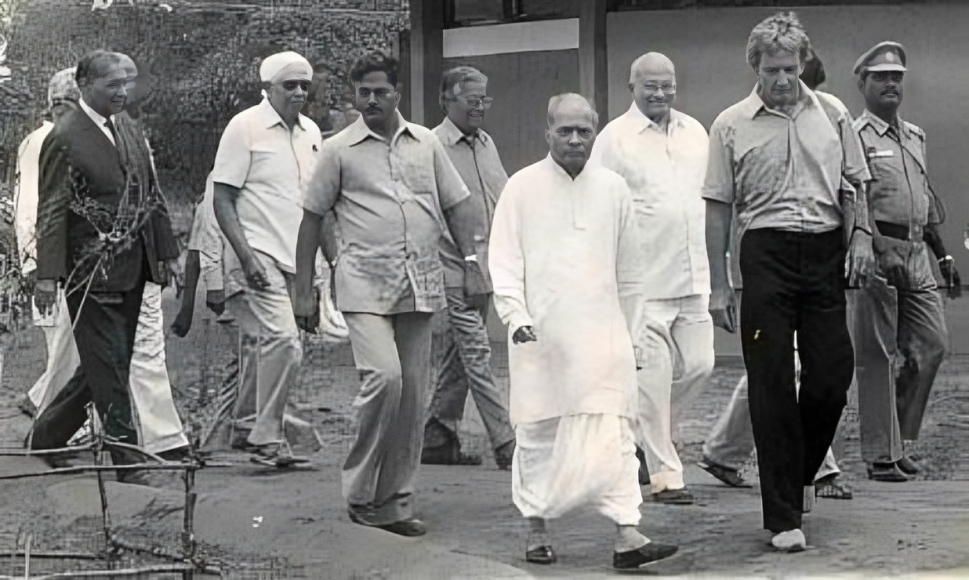Organisational History and Involvement of Government of India

During Auroville's first few years, from 1968 to 1973, the Mother directly guided the project. After her passing in November 1973, the residents of Auroville soon found themselves in confrontation with the Sri Aurobindo Society, who claimed control over the project. From this time onwards, the community started to create and experiment with its own organisational structure.
In 1980, responding to requests from the residents, the Government of India passed the Auroville Emergency Provisions Act, whereby the management of all assets and undertakings relatable to Auroville were, for a limited period of time, vested in the Government of India. The Sri Aurobindo Society subsequently challenged the constitutional validity of the Act, on the grounds that Auroville was a religious denomination and that the Government had violated the Indian Constitution by passing the Act. In November 1982, the Constitution Bench of the Supreme Court of India judged that Auroville did not constitute a religious denomination and that the teachings of Sri Aurobindo only represent his philosophy and not a religion. The validity of the Act was upheld.
The Auroville Emergency Provisions Act initiated a period of renewed stability and growth. An Administrator, appointed by the Government of India, was the official manager of all assets. An International Advisory Council was set up under the Act to advise the Government of India on Auroville matters. It met for the first time in Delhi in February 1981. Its members were Mr M'Bow, then Director General of UNESCO; the late Mrs Ludmila Zhivkova, then Minister of Culture and Education, Bulgaria; Mr Narasimha Rao, then Minister of Education, later Prime Minister of India; and late Mr J.R.D. Tata, Indian industrialist. Mr Kireet Joshi, then Special Secretary Ministry of Education, Government of India, was the Council's Secretary. The Council further met in Delhi in 1983, '85, and '86. Mr Narasimha Rao, Mr M'Bow, Mr J.R.D. Tata and Mr Kireet Joshi came to Auroville in August 1986, while Mrs Zhivkova had visited Auroville earlier, in 1981.
In September 1988, the Government of India protected Auroville once again by passing a unique Act of Parliament, the Auroville Foundation Act, 1988. This act provided, in the public interest, for the acquisition of all assets and undertakings relatable to Auroville without payment of compensation. These assets, which till then were managed by the Administrator under the Auroville Emergency Provisions Act, were temporarily transferred to the Government of India, with the aim of ultimately vesting them in a body corporate established for the purpose, the Auroville Foundation. The Auroville Foundation came into existence in January 1991. The assets were vested in the Foundation on April 1st, 1992.
See Also



